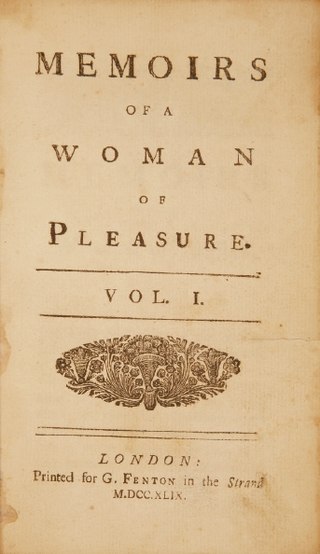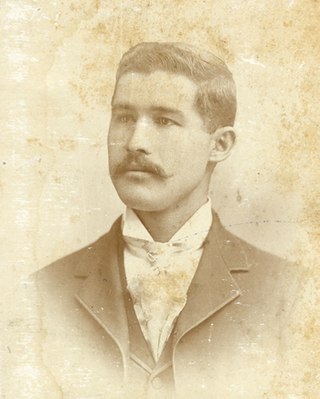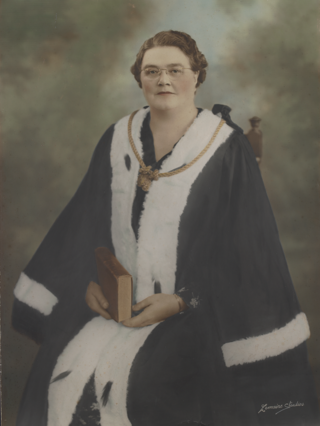This article needs additional citations for verification .(June 2007) |
Fanny Furner (1864–1938) [1] was an activist who worked to further the rights of women and children in the early 1900s in Sydney.
This article needs additional citations for verification .(June 2007) |
Fanny Furner (1864–1938) [1] was an activist who worked to further the rights of women and children in the early 1900s in Sydney.
Fanny Furner was one of the first female JPs in New South Wales [2] and along with fellow member of the Theosophical Society, Mrs AV Roberts, the first women to stand for election in local government - Mrs Roberts in North Shore, Fanny in Manly.
Furner was instrumental in setting up a Memorial at the gates at the Wharves in Woolloomooloo to commemorate the place from where most of the men embarked for the First World War. She was also instrumental in getting the Children's Playground near the wharf at Manly built (opposite the police station). Furner was responsible for the Home Mission Society bins being placed at the Manly Wharves.
Furner had many articles in The Manly Daily on civic and social matters and was friendly with the editor and owner. However the paper was burnt out in 1959 and there are no copies at the State Library held before that date.
References to Fanny Furner and her accomplishments continue to surface. On 19 September 1987, an article appeared in the Manly Daily newspaper, stating:
Fanny Set Precedent. Next week eight women will seek election, following a precedent set 65 years ago when Fanny Furner announced her candidature as the first woman to stand for Manly Council. She was unsuccessful but pleaded the cause of a female voice to be heard on the council. Fanny believed women should have a say in municipal affairs relating to public health, housing, pure foods, roads, sanitation and liquor laws, amusements and children's interests." [ citation needed ]
This article, published long after Furner's death demonstrates the longevity of her suffrage work.

Memoirs of a Woman of Pleasure—popularly known as Fanny Hill—is an erotic novel by the English novelist John Cleland first published in London in 1748. Written while the author was in debtors' prison in London, it is considered "the first original English prose pornography, and the first pornography to use the form of the novel". It is one of the most prosecuted and banned books in history.

Rebecca Ann Felton was an American writer, lecturer, feminist, suffragist, reformer, slave owner, and politician who was the first woman to serve in the United States Senate, although she served for only one day.

Pittwater Council was a local government area on the Northern Beaches of Sydney, in the state of New South Wales, Australia. It covered a region adjacent to the Tasman Sea about 30 kilometres (19 mi) north of the Sydney central business district. The area is named after Pittwater, the body of water adjacent to much of the area governed. First proclaimed in 1906 as the A Riding of Warringah Shire, the area was proclaimed as the Municipality of Pittwater on 1 May 1992. On 12 May 2016, the Minister for Local Government announced that Pittwater Council would be subsumed into the newly formed Northern Beaches Council. The last mayor of Pittwater Council was Councillor Jacqui Townsend, an independent politician.

Warringah Council was a local government area in the northern beaches region of Sydney, in the state of New South Wales, Australia. It was proclaimed on 7 March 1906 as the Warringah Shire Council, and became "Warringah Council" in 1993. In 1992, Pittwater Council was formed when the former A Riding of Warringah Shire voted to secede. From this point on until amalgamation, Warringah Council administered 152 square kilometres (59 sq mi) of land, including nine beaches and 14 kilometres (9 mi) of coastline. Prior to its abolition it contained 6,000 hectares of natural bushland and open space, with Narrabeen Lagoon marking Warringah's northern boundary and Manly Lagoon marking the southern boundary.

Edith Dircksey Cowan was an Australian social reformer who worked for the rights and welfare of women and children. She is best known as the first Australian woman to serve as a member of parliament. Cowan has been featured on the reverse of Australia's 50-dollar note since 1995.

Frances Milton Trollope, also known as Fanny Trollope, was an English novelist who wrote as Mrs. Trollope or Mrs. Frances Trollope. Her book, Domestic Manners of the Americans (1832), observations from a trip to the United States, is the best known.

Women's rights have been a cornerstone of the political reforms initiated by King Hamad, with women gaining the right to vote and stand as candidates in national elections for the first time after the constitution was amended in 2002. The extension of equal political rights has been accompanied by a conscious drive to promote women to positions of authority within government.

Manly Council was a local government area on the northern beaches region of Sydney, New South Wales, Australia, first incorporated in 1877. On 12 May 2016, the Minister for Local Government announced that Manly Council would be subsumed into the newly formed Northern Beaches Council. The last mayor of Manly Council was Cr. Jean Hay, a member of the Liberal Party.
Government in Australia is elected by universal suffrage and Australian women participate in all levels of the government of the nation. In 1902, the newly formed Commonwealth of Australia became the first nation on earth to enact equal suffrage, enabling women to both vote and stand for election alongside men Women have been represented in Australian state parliaments since 1921, and in the Federal Parliament since 1943. The first female leader of an Australian State or Territory was elected in 1989, and the first female Prime Minister took office in 2010. In 2019 for the first time, a majority of members of the Australian Senate were women. At the time of its foundation in 1901, and again from 1952 to 2022, Australia has had a female monarch as ceremonial Head of State, while the first female Governor of an Australian State was appointed in 1991, and the first female Governor-General of Australia took office in 2008.

A movement to fight for women's right to vote in the United Kingdom finally succeeded through acts of Parliament in 1918 and 1928. It became a national movement in the Victorian era. Women were not explicitly banned from voting in Great Britain until the Reform Act 1832 and the Municipal Corporations Act 1835. In 1872 the fight for women's suffrage became a national movement with the formation of the National Society for Women's Suffrage and later the more influential National Union of Women's Suffrage Societies (NUWSS). As well as in England, women's suffrage movements in Wales, Scotland and other parts of the United Kingdom gained momentum. The movements shifted sentiments in favour of woman suffrage by 1906. It was at this point that the militant campaign began with the formation of the Women's Social and Political Union (WSPU).

Selina Sarah Elizabeth Siggins was an Australian political activist who became the first woman to stand for the Australian House of Representatives. She ran as an independent at the 1903 federal election, the first at which women were eligible to be candidates. Although she spent most of her life in New South Wales, in 1918 she also became one of the first two women to stand for the Parliament of South Australia. Siggins was introduced to politics through her involvement in the labour movement, and initially supported the Labor Party. She eventually fell out with the party over its refusal to endorse her as a candidate. Her final run for parliament came at the 1922 federal election, where she became the first woman to stand for the Country Party.
Sir Hugh Dixson was an Australian business man and philanthropist.

AlexanderLightfoot Manly was an newspaper owner and editor who lived in Wilmington, North Carolina. With his brother, Frank G. Manly, as co-owner, he published the Daily Record, the state's only daily African-American newspaper and possibly the nation's only black-owned daily newspaper. At the time, the port of Wilmington had 10,000 residents and was the state's largest city; its population was majority black, with a rising middle class.

Elizabeth Lilian Maud Fowler MBE, JP was an Australian politician. She was Australia's first female mayor, serving as mayor of Newtown, New South Wales, from 1937 to 1939. She later represented the seat of Newtown in the New South Wales Legislative Assembly from 1944 to 1950. She had a long involvement with the Lang Labor faction of the Australian Labor Party (ALP), which had evolved into a separate party by the time of her election to Parliament.
Julie Sutton is a former New South Wales politician and Marriage Celebrant, elected as a Councillor of Warringah Council and was previously Mayor of Warringah from 1995 to 1996 and 2002 to 2003.

Women's suffrage in Australia was one of the early achievements of Australian democracy. Following the progressive establishment of male suffrage in the Australian colonies from the 1840s to the 1890s, an organised push for women's enfranchisement gathered momentum from the 1880s, and began to be legislated from the 1890s, decades in advance of Europe and North America. South Australian women achieved the right to vote in 1894, and to stand for office in 1895 following the world first Constitutional Amendment Act 1894. This preceded even male suffrage in Tasmania. Western Australia granted women the right to vote from 1899, although with some racial restrictions. In 1902, the newly established Australian Parliament passed the Commonwealth Franchise Act 1902, which set a uniform law enabling women to vote at federal elections and to stand for the federal parliament. By 1908, the remaining Australian states had legislated for women's suffrage for state elections. Grace Benny was elected as the first councillor in 1919, Edith Cowan the first state Parliamentarian in 1921, Dorothy Tangney the first Senator and Enid Lyons the first Member of the House of Representatives in 1943.

Women's suffrage in Canada occurred at different times in different jurisdictions to different demographics of women. Women's right to vote began in the three prairie provinces. In 1916, suffrage was earned by women in Manitoba, Saskatchewan, and Alberta. The federal government granted limited war-time suffrage to some women in 1917 and followed with full suffrage in 1918, at least, granting it on same basis as men, that is, certain races and status were excluded from voting in federal elections prior to 1960.

Fanny Eileen Brownbill was an Australian state politician, serving as the Labor Party Member for Geelong, Victoria, serving from 1938 until her death in 1948. Brownbill was the first woman to win a seat for Labor in Victoria.

Helen Miller Fraser, later Moyes, was a Scottish suffragist, feminist, educationalist and Liberal Party politician who later emigrated to Australia.
Eliza Pottie was an Australian social reformer, and a leader in women's organization in New South Wales. She was involved in the founding of the Young Women's Christian Association in Sydney, the Ladies' Sanitation Association, and the Women's Christian Temperance Union. She served as president of the Ladies Sanitation Association for nine years. She advocated for prison reform, supported orphanages, visited people in hospitals and institutions, and campaigned for women's suffrage. She was appointed to the Government Asylum Inquiry Board in 1886. A member of the Religious Society of Friends, she helped found the Quaker Relief Committee during the depression of 1893. In 1896, she attended the first National Council of Women New South Wales as a delegate for the WCTU. She died at her home in Manly in 1907.